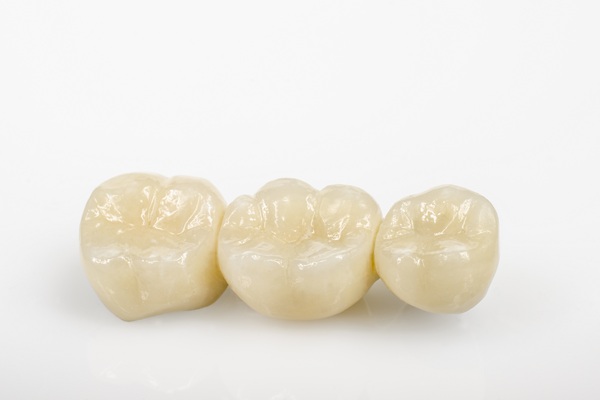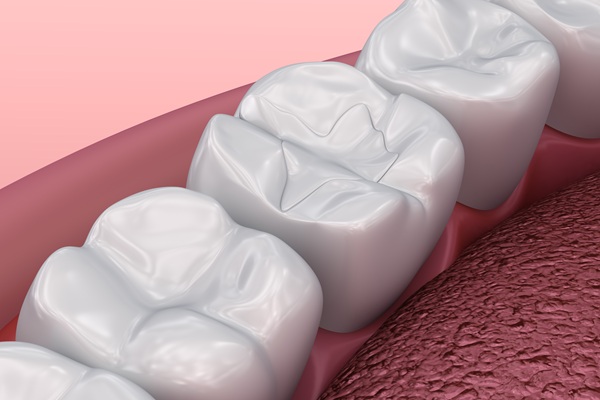How Laser Dentistry Can Treat Gum Disease

Learning what laser dentistry is and how it works is something every dental patient should do, as this allows them to make treatment choices that are right for them. Modern-day dentistry has allowed for the evolution of so many kinds of dental advancements, including laser dentistry, which has been proven to produce successful results for those suffering from oral conditions. Ready to learn more about laser dentistry?
What is laser dentistry?
According to Healthline, laser dentistry can offer a more comfortable treatment option for a number of dental procedures involving hard or soft tissue, compared to drills and other non-laser tools. Using a laser requires dental professionals to focus the laser light beam in a way that allows them to detect cavities, perform dental fillings, remove damaged tissue and reshape gum tissue (gummy smile) in order to improve a dental patient’s oral health.
A few specific procedures laser dentistry can address include hypersensitivity in teeth, treating tooth decay and treating gum disease.
About gum disease
Also called periodontal disease, when someone is diagnosed with gum disease, it means that they have a serious infection in their gums. Gum disease damages these soft tissues, making treatment by a dental professional necessary. Gum disease will not go away on its own and instead will continue to worsen until it is treated. If it is not treated in a timely manner, those diagnosed will eventually lose one or more of their teeth, as the infection will destroy the supporting bones that hold teeth in their proper positions.
According to the National Institute of Dental and Craniofacial Research, periodontal disease is an infection of the tissues that hold one's teeth in place and is typically caused by poor brushing and flossing habits that allow plaque, a sticky film of bacteria, to build up on the teeth and harden.
Treating gum disease using advanced dental procedures
Gum disease treatment requires a dental professional to thoroughly clean a patient's teeth in order to remove any plaque and tartar buildup that is stuck to the teeth. There are four stages of gum disease, which all vary in severity. Whatever stage the patient is at, will determine the depth of treatment, e.g., gingivitis, slight periodontal disease, moderate periodontal disease and advanced periodontal disease. When gum disease is treated using laser dentistry, it helps to preserve, as well as regenerate, the gum tissue.
Laser dentistry will get rid of any infected gum tissue that can cause problems, leaving the healthy tissue in place. Lasers will also help to stimulate the tissue so new and healthy cells can grow, allowing the gums, ligaments and any damaged bone to start regrowing so the gums and surrounding areas can properly heal. Once the gum tissue problems are repaired through laser dentistry, the teeth are then cleaned.
Specific benefits that come with choosing lasers to address gum disease include minimal discomfort if any, less bleeding, preservation of the gum tissue and it is a sterile treatment option that supports a faster healing process.
Got gum disease?
Now that the above information on laser dentistry has been read and understood, dental patients who are in need of gum disease treatment can decide whether or not using lasers to address their gum disease is the right choice for them. Reach out today to learn more or to get started!
Are you considering laser dentistry in the Brooklyn area? Get more information at https://www.myddsny.com.
Check out what others are saying about our dental services on Yelp: Laser Dentistry in Brooklyn, NY.
Related Posts
A porcelain fixed bridge is outstanding as a dental restoration that can replicate the appearance and function of natural teeth. The dental bridge is an option to consider when seeking to replace one or multiple teeth that are damaged or lost. A dentist can design the porcelain fixed bridge to mimic the look of natural…
When a tooth develops a cavity, a tooth filling will be required to repair the tooth and restore its function and appearance. Since tooth pain is often the first sign of a cavity, it is normal for patients to be worried about what they will feel during the filling procedure. This article focuses on what…
TMJ disorder occurs when the temporomandibular joint is injured or overworked. The joint is responsible for connecting the skull and the jawbone, and it plays an important role in the jaw movement. When TMJ disorder develops, symptoms develop and can worsen without appropriate treatment. There are many different symptoms of TMJ disorder, but some TMJ symptoms…
A porcelain crown is a versatile dental restoration that protects and preserves damaged, weakened, or decayed natural teeth. By encasing the visible portion of a tooth, a porcelain crown restores its function, strength, and appearance. This treatment effectively saves a natural tooth from further damage, ensuring long-term oral health and maintaining the aesthetics of your…


